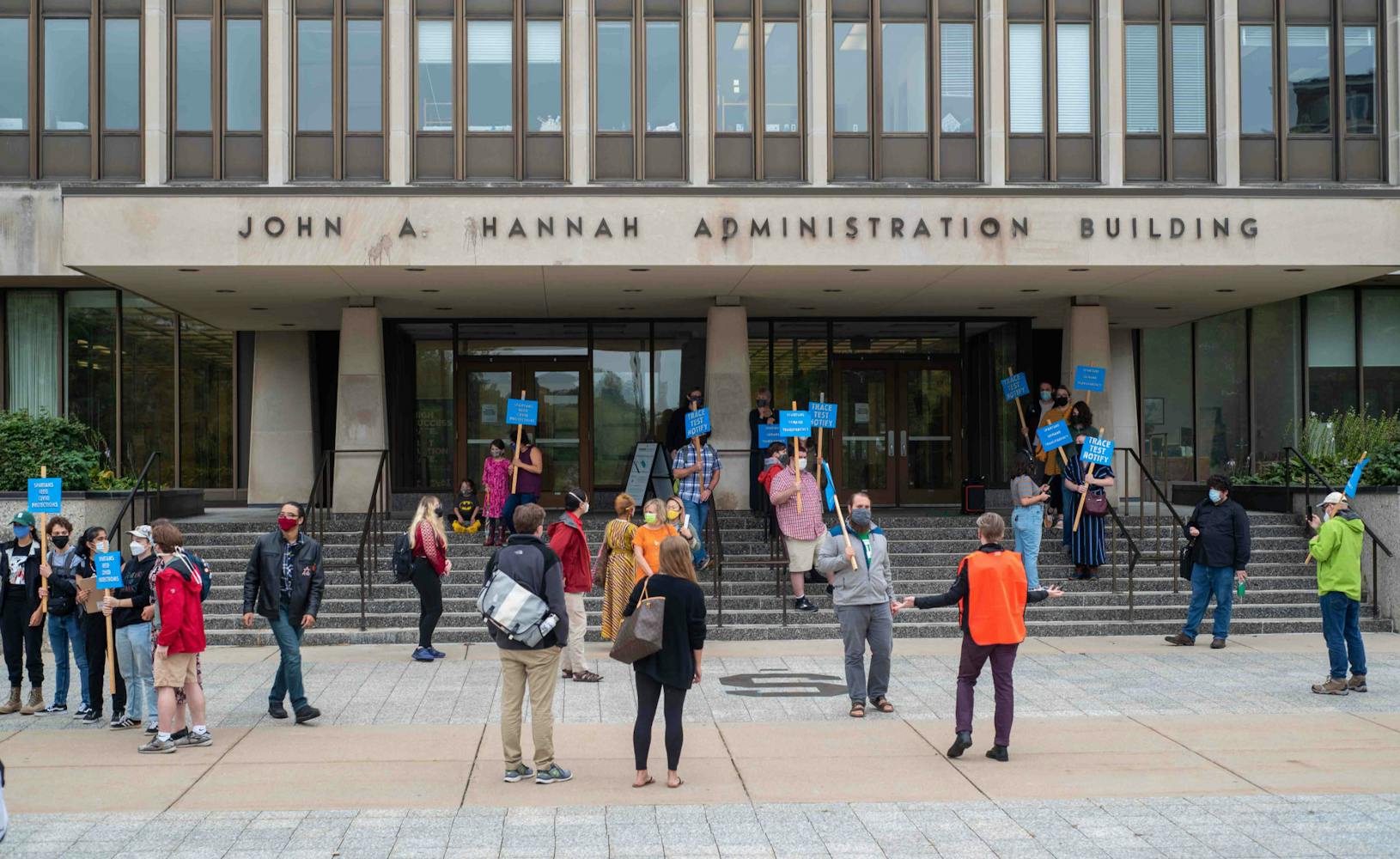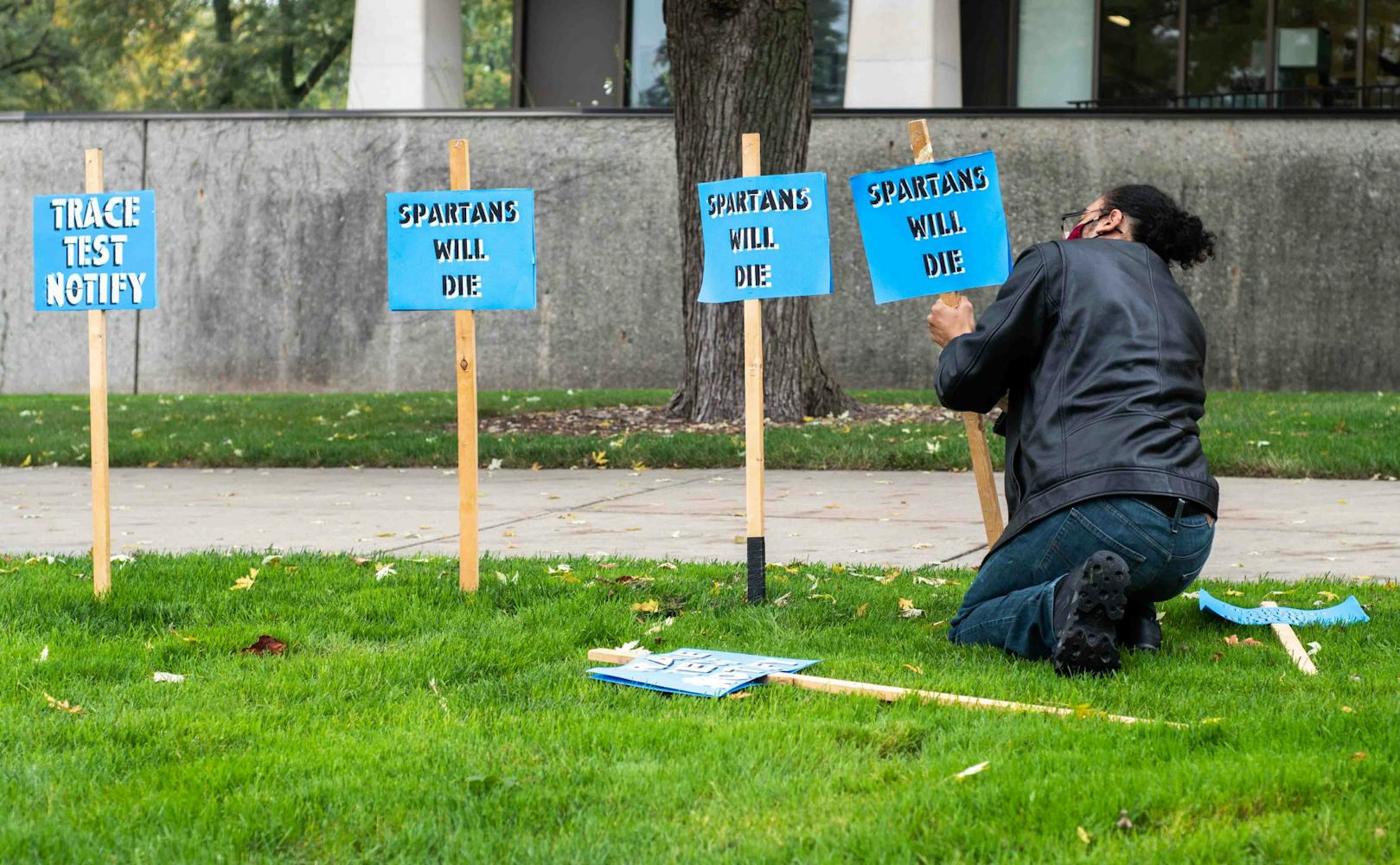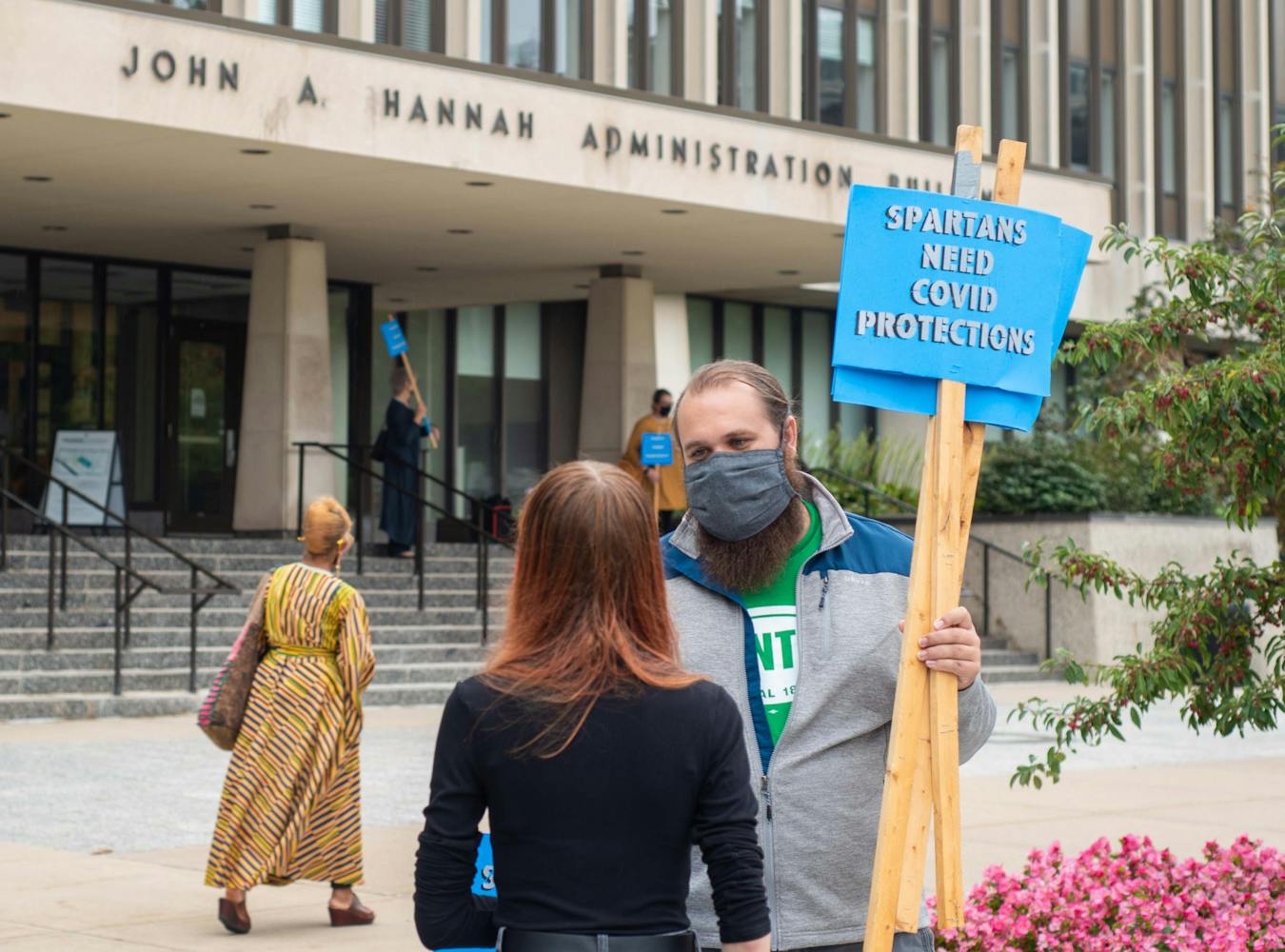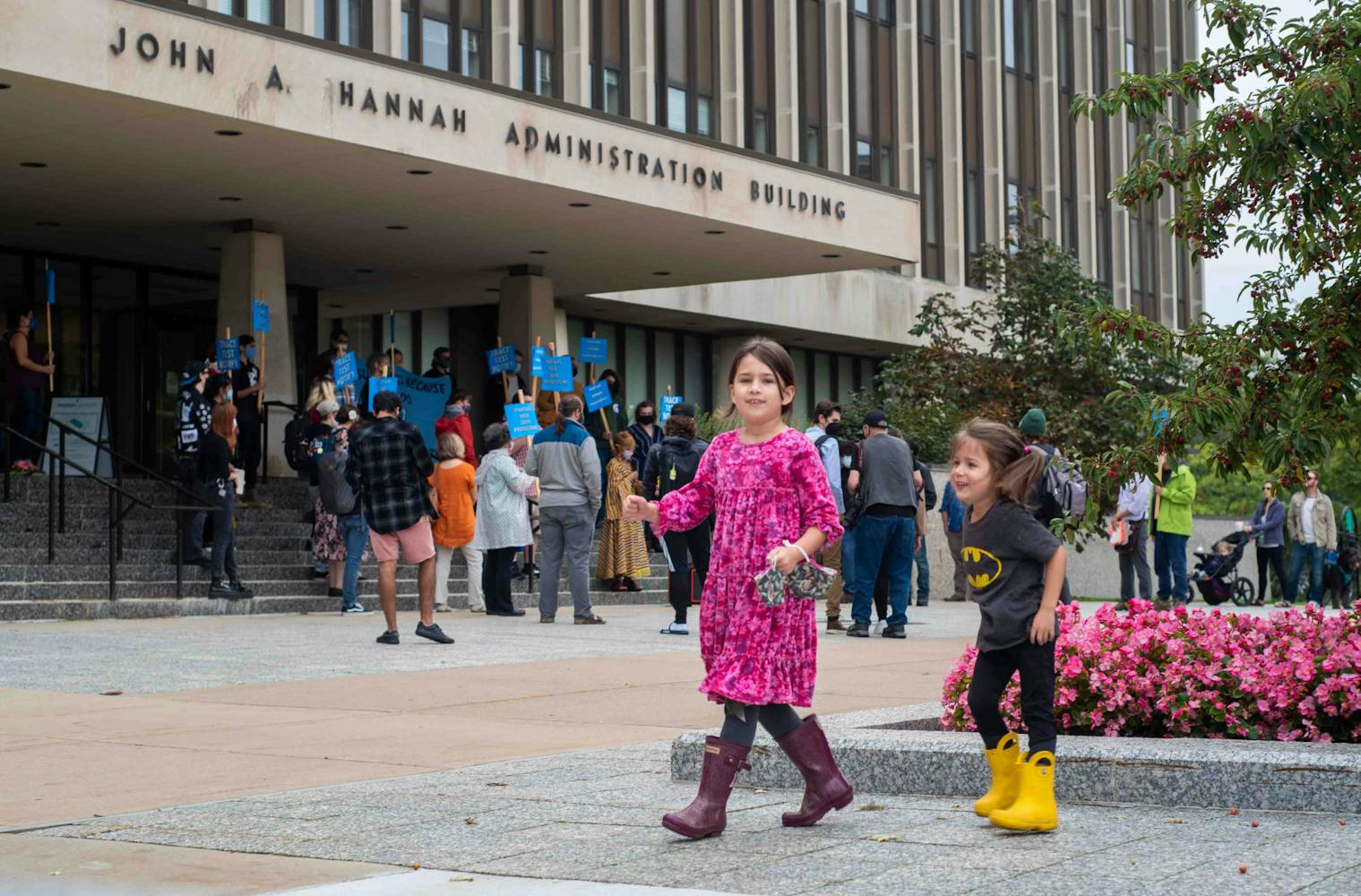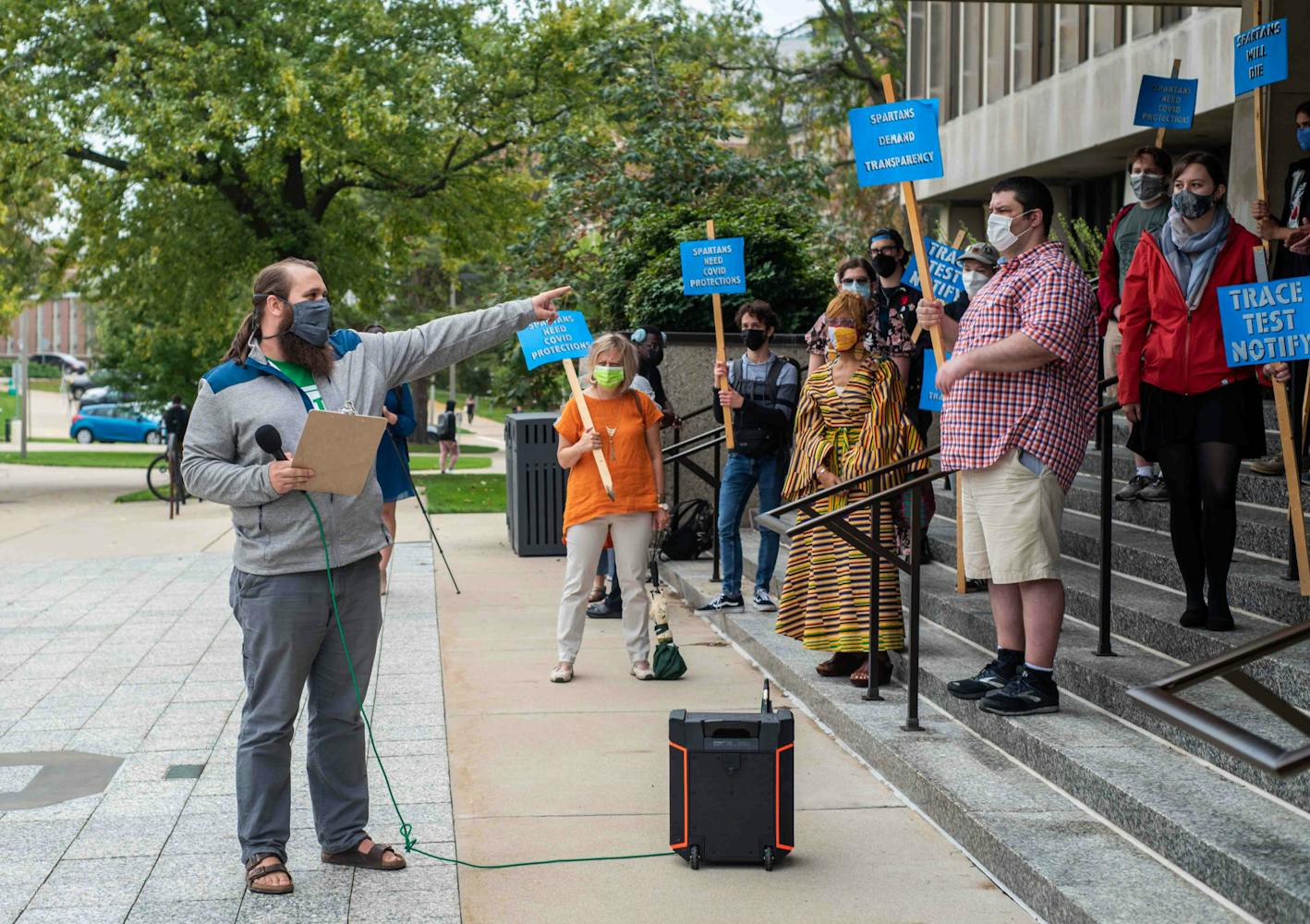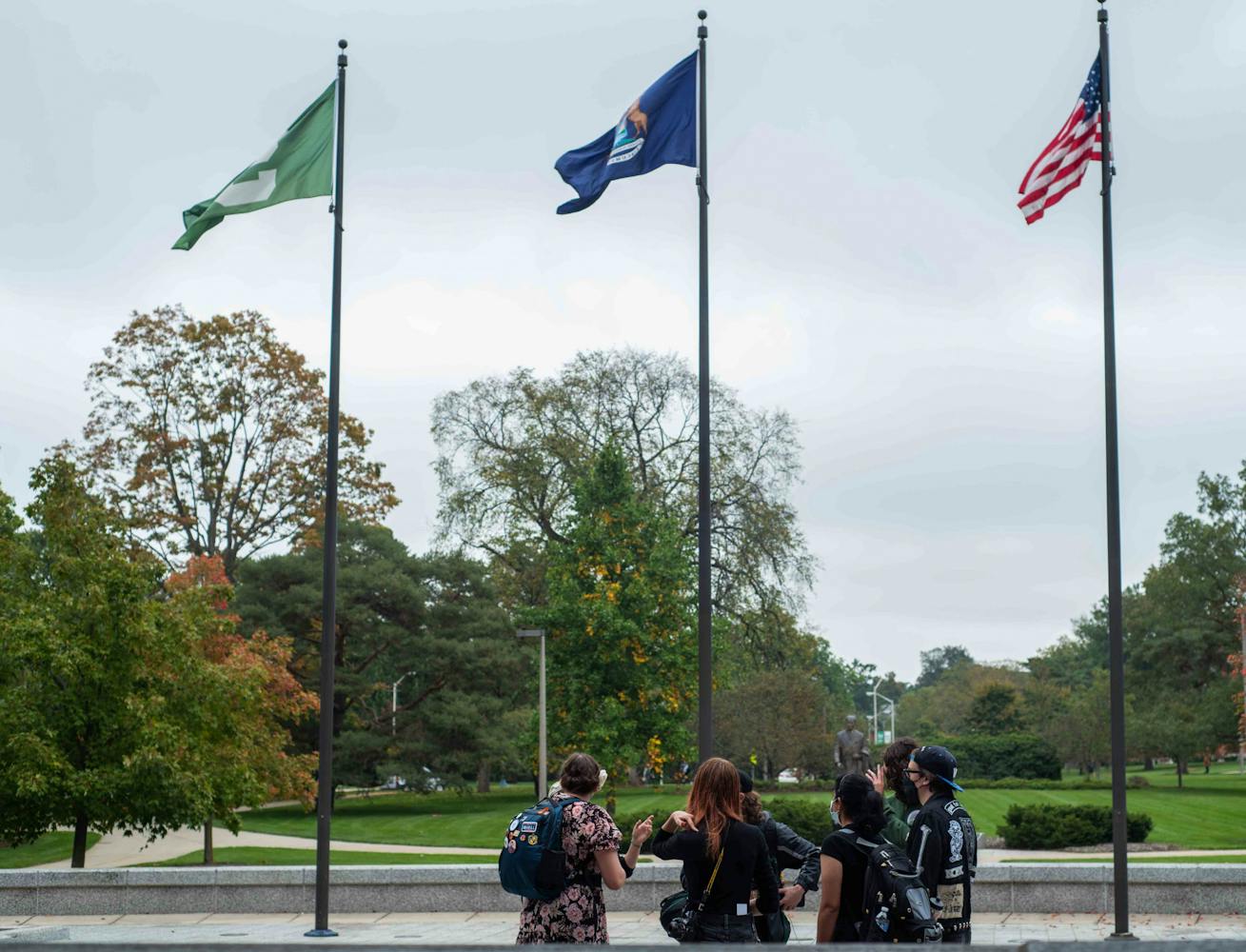Transparency is also an issue, Union of Nontenure-Track Faculty, or UNFT, staff member Richard Fessler said.
”We've been told several times that the university is working on things behind the scenes, but they won't tell us what they're working on or what they're doing,” he said.
Fessler referenced Wayne State University’s COVID-19 management plan as an example of positive procedures.
The Warriors' guidelines include a collection of “Tipping Point Metrics.” These are figures of differing severity that, if surpassed, prompt the University to take various measures to reduce the spread of the virus.
“It would be just really comforting to know that this administration is monitoring certain things in Ingham County, monitoring certain things on campus and that they already have a plan in place,” Fessler said. “Honestly, right now, it just seems like there is no plan.”
Kate Birdsall, the president of the UNTF and a professor of professional and public writing, was shocked by the sudden change in MSU's notification procedure.
Birdsall addressed the Memorandum of Understanding negotiated with the university at the end of August, which is now being contradicted by the notification change.
“We then had ... the option to have a conversation with our bosses if we’re notified (of a COVID case in our classes),” she said. “Those notifications were enabling that to happen; now, we’re just not notified.”
UNTF Vice President and MSU professor Victor Rodriguez echoed this idea.
“They're basically doing everything to undermine that agreement, and they're putting our health in danger, so that’s why we’re here today,” Rodriguez said.
Rodriguez said faculty need to have access to necessary information, like vaccination rates and infection rates, so they can make the best decisions possible.
“I, myself, I'm teaching in person because I really wanted to, and because I think students deserve it,” Rodriguez said. “But we want to do it carefully.”
Among the faculty at this demonstration was Associate Professor in Writing, Rhetoric and American Cultures Denise Troutman. She emphasized how crucial she believes keeping BIPOC individuals at the forefront of COVID policies is.
“If this administration truly believes that Black lives matter, and that BIPOC lives matter, do not put our lives into precarious situations,” she said.
The significance of BIPOC in these policies, Troutman explained, is the long list of inequities those communities have suffered in America’s history, such as slavery, Jim Crow Laws, police brutality and the Flint Water Crisis.
“Do not put our bodies on the front lines, again,” she said.
In addition to the UNTF, the Young Democratic Socialists of America, or YDSA, the Graduate Employees Union, or GEU, and activist group Spartan Solidarity Network, or SSN, attended the demonstration, as well as students independent of these groups.
YDSA member and experience architecture and computer science senior Ivy Rose spoke at the demonstration regarding their personal health concerns as a student. They explained a professor of theirs recently scolded the lack of attendance of many students and attributed this to laziness, but Rose said laziness is not always to blame.
Support student media!
Please consider donating to The State News and help fund the future of journalism.
“When I woke up on Monday, I had to make a decision about whether or not to go (to class),” they said. “I thought about my classmate and his girlfriend who were recently sick with COVID, and another classmate who texted me ‘Hey, I woke up with a sore throat, let me know what happens today,’ and the anti-vaxxer who sits across from me and has his nose sticking out of his mask and my doctor, who gravely said that I ‘wouldn’t make it a single day on a ventilator.'”
Chemical Engineering Junior Evan Haag said the university should make its weekly Spartan Spit tests for COVID-19 mandatory for all students, including those who have been vaccinated.
Some professors have attempted to address these concerns from their students.
“I think they’re really scared ... I have a couple of students in both of the classes that I teach who have asked me to give them a Zoom option, which I have done,” Birdsall said. “The university cannot require that of all of us, as it is more labor, but, yeah, there are students who are freaked out.”
A major part of the demonstration focused not only on the issues faculty and students face but also on who should be held responsible for those issues. To them, it is the administration.
“They are inviting thousands of people back on the campus and the East Lansing community,” staff organizer with the Graduate Employee Union Lamont Stephens said. “They have a responsibility to ensure that everyone here knows very up to date statistics on COVID so they can make decisions that are gonna be healthiest for not only their families and their communities, but the communities that they’re coming into.”
Stephens also commented on the importance of transparency.
“If they’re doing things behind closed doors, what if their policies aren’t up to what we’re asking for?” Stephens said. “So if they push something out that they’ve been working on for months and it’s not adequate and we weren't a part of that process, then we’re going through this all over again.”
Assistant professor in the business school Carol Prahinski spoke directly to MSU President Samuel L Stanley Jr.
“President Stanley, if you’re listening, it’s all ears for you,” she said. “I want strong leadership. I don’t wanna just ignore it and act like it doesn’t exist.”
Prahinski attempted to hold her classes online for her own health and that of her students but soon realized that was not going to be an option.
“I ended up being online for one day before it went up to the provost's office and they complained about the number of parents that were complaining or the number of students that were complaining, with the conspiracy theory… that we're just out there for the money,” she said.
Although these demonstrators take issue with much of MSU's handling of the COVID-19 pandemic, they did cite some of what the university has done right.
“I do want to go on record as saying we're really happy about the vaccine and mask mandate,” Birdsall said. “We’re doing way better than a lot of the other institutions in the Big Ten as a result."
Throughout each speech given at the demonstration, the gravity and urgency of the speaker’s concerns were emphasized.
“We are here today with a sense of urgency because we understand that administrative inaction will lead to deaths in our community, and I, my friends, and my professors may just be among the Spartans that are buried this semester,” Rose said.
Near the end of the event, Fessler read aloud an open letter to President Stanley, which carried signatures collected by demonstrators. As he began reading, he raised his voice and began projecting his words towards the offices in the Hannah Administration Building.
“It is obvious that my health as well as that of my students, and my family is in danger,” Fessler said, reading from the letter. “We demand that Michigan State University immediately implement mandatory testing for all students, put in place a robust tracing and notification program and approve courses be taught online.”
Rodriguez then entered the building to hand off the signed letters to be given to Stanley.
Discussion
Share and discuss “Trace, Track, Notify: MSU students and faculty call for urgent changes to COVID policy” on social media.
